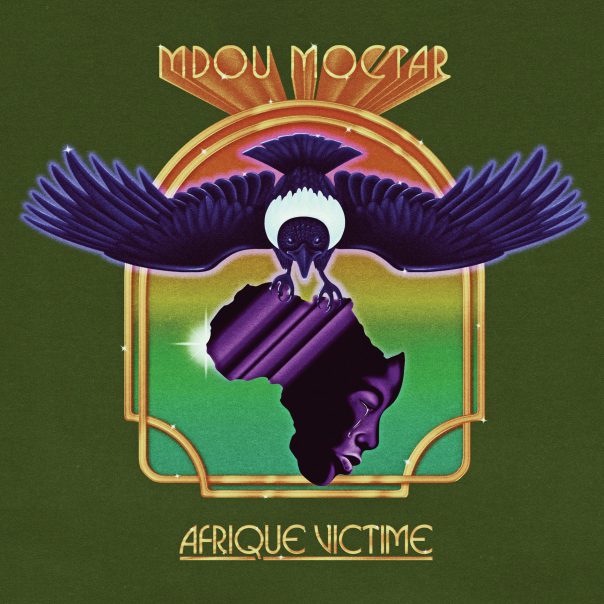Album Review: Mdou Moctar takes guitar by the reigns on ‘Afrique Victime’

The last 20 years have been an arid epoch for those rock fans who still worship at the temple of the electric guitar. Long gone are the halcyon days when radio and pop culture bowed before indulgent shredders and rude riffing. The fresh, six-string sounds of Mdou Moctar provide a rejuvenating jolt to acolytes of the axe.
Afrique Victime
Mdou Moctar
Matador, May 21
9/10
Moctar’s latest album, Afrique Victime, continues the overdriven rock style undertaken on 2019’s Ilana (The Creator). Where his earlier albums dabbled in rootsy African folk sounds and modern effects, he lets his Stratocaster do the talking here. The resulting creation resonates with his singular sound. Far from impenetrable, the record carries listeners along on sandstorms of driving, infectious rock and roll.
The title track represents a fulmination of Mdou Moctar’s latest inspiration. He foreshadows the memorable vocal line with a plaintive vocal intro before a crushing guitar chord heralds the epic. The song builds as it goes, gathering backing vocalists and gravity with each refrain. A clear highlight of his catalog, “Afrique Victime” grounds electrified firepower with a rousing chorus and a joyous rhythmic stomp. A highly volatile noise jam takes the song to further heights.
An exponent of Africa’s fertile rock scene, Mdou Moctar carries the torch for true guitar discipleship. Growing up in a small town in sparsely populated Niger, he built his first guitar against his parents’ febrile hopes. True to his roots, Moctar dwells heavily in Tuareg rhythms and their possibilities for electric guitar. The nine songs on Afrique Victime, which translates loosely to “victim Africa,” center on his exploratory guitar work.
In contrast to the strident anthems of bands like Mali’s Songhoy Blues, Moctar creates a spacey, soulful and rhythmically rich soundscape. Evidence of this appears persistently in Moctar’s free improvisation. His biting tone cuts through the atmosphere of opening track “Chismiten.” Like much of the record, the song travels by unrestrained and celebratory airs. Incendiary guitar solos lance through at surprise angles. His jams feel like journeys; ones not tidy enough to fit as conventional pop songs. Vocals are used to buoy the musical forays rather than the other way around.
Some of the pastoral charm of Moctar’s earlier records resurfaces on songs like the inviting “Tala Tannam” and “Bismilahi Atagah.” The latter begins with a hint of North American folk-blues before soaring away through fine vistas and blue skies. The chord changes and atmosphere are reminiscent of the country meanderings of early Thin Lizzy. Yet it would be difficult to confuse Afrique Victime with the work of any European or American artist. The album’s rhythms and intonations seem to carry with them a time and place largely overlooked by Western rock audiences.
For the remoteness of Moctar’s sonic palette, we should be glad the sounds have reached our ears at all. Only by the artist’s devotion and resourcefulness was he able to gain recognition in the first place. Where there is no cell service, smartphones are traded among the young for their music and photo capacities. After initially going viral on cell phone trading networks in the Sahel, Moctar survived predatory record labels, spartan European tours and the difficulty of finding a left-handed guitar in isolated Agadez.
The cinematic sweep of an untitled interlude hints at Saharan vastness, and perhaps gives a window into the daunting odds of Moctar’s mission. Meanwhile, “Layla” (not a Clapton cover) jounces along with stoic grit, conjuring visions of a hot, uncomfortable trek under a harsh sun. Nuanced percussion and booming drums suggest that giving up is not an option, and the tune somehow arrives at its end in triumph.
Moctar’s North American footprint has so far been muted but persistent. Uncompromising in his art and expression, he brings a fully formed aesthetic to a socially conscious message. A natural fit for the festival circuit, Mdou Moctar is scheduled to appear later this year at both Bonnaroo and Treefort in Boise. With five previous albums and an EP already under his belt, he continues his imaginative journey across a world still full of optimism and adventure on Afrique Victim.
